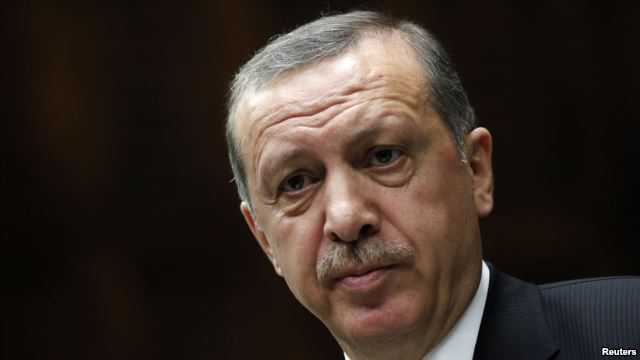ISTANBUL — Frustrated in its attempt to join the European Union, NATO-member Turkey last week signed up as a partner with the Shanghai Cooperation Organization (SCO), the security bloc dominated by China and Russia that includes the Central Asian states. But, Ankara still has major differences with China and Russia that need to be ironed out.

Turkish Foreign Minister Ahmet Davutoglu described the signing of the SCO cooperation agreement as an historic day for his country, saying Turkey is the first NATO state to establish such a relationship with the SCO. “If we look from a Cold War perspective,” he said, “these may seem like mutually exclusive institutions. However, the Cold War has ended. Turkey won’t be a slave of the Cold War logic.”
The United States has questioned whether Turkey can become a member of a security organization besides NATO, like the SCO. But the Turkish foreign minister argues such dual membership is possible now that Moscow and Beijing are no longer considered enemies by NATO.
Semih Idiz, a diplomatic columnist for the Turkish newspaper Taraf, says Ankara is attracted by the SCO because it shares cultural values with several SCO member states.
“Some members are of Turkish origin and one member, Tajikistan, is of Farsi origin, but nevertheless it is Islamic predominantly,” said Idiz. “And the fact there are shared cultural values in these groups tends to let people believe that this is a kind of Islamic entity or Turkish Islamic entity.”
China, Russia and four Central Asian nations – Kazakhstan, Kyrgyzstan, Tajikistan and Uzbekistan – formed the SCO in 2001 as a regional security bloc to fight threats posed by radical Islam and drug trafficking from neighboring Afghanistan.
Sinan Ulgen, a visiting scholar at the global research group Carnegie Europe, says Ankara’s signing of the cooperation agreement with the SCO is meant to send a message to the European Union.
“They were meant to be read as a warning to EU members that continue to condone obstructionist policies in relation to EU member accession prospects,” said Ulgen. “And the second reason is that Turkey wants to demonstrate that [it has] now become not only a regional power, but also a global actor.”
Turkish Prime Minister Tayyip Erdogan has called the delay in Turkey joining the EU “unforgivable” and has accused Brussels of not being a fair or genuine negotiating partner.
Diplomatic columnist Idiz says there are also limitations to how close Turkey’s relationship with the SCO can become due to its major differences with two key SCO members – Russia and China.
“There are differing interests between Turkey and the key members of SCO, Russia for one. Syria [and Turkey] are diametrically opposed and are accusing each other very silently diplomatically,” he said. “Also China, who only two years ago was being accused of perpetrating genocide against Uighur Turks in the Xinjiang province [of China], for example. But they can agree on trade, and I think that will be the driving force here.”
Ankara has said it will continue to develop its relationship with the SCO. How that relationship develops could depend on whether or not its bid to join the EU finds new momentum.
Still, observers say that even if Turkey’s dreams of EU membership are shattered, it will likely attract new suitors besides the SCO, given its rapidly growing economy.
